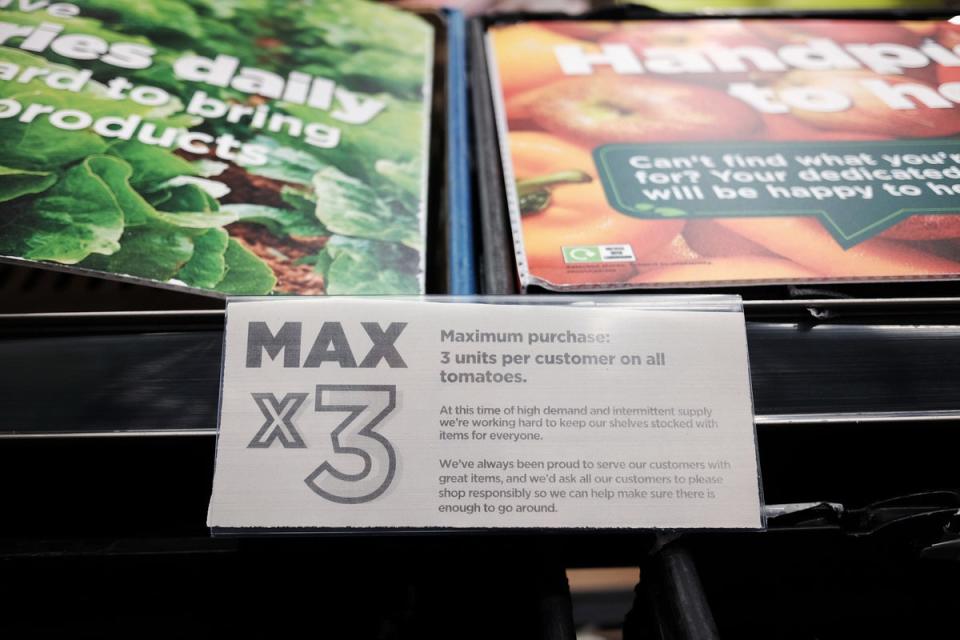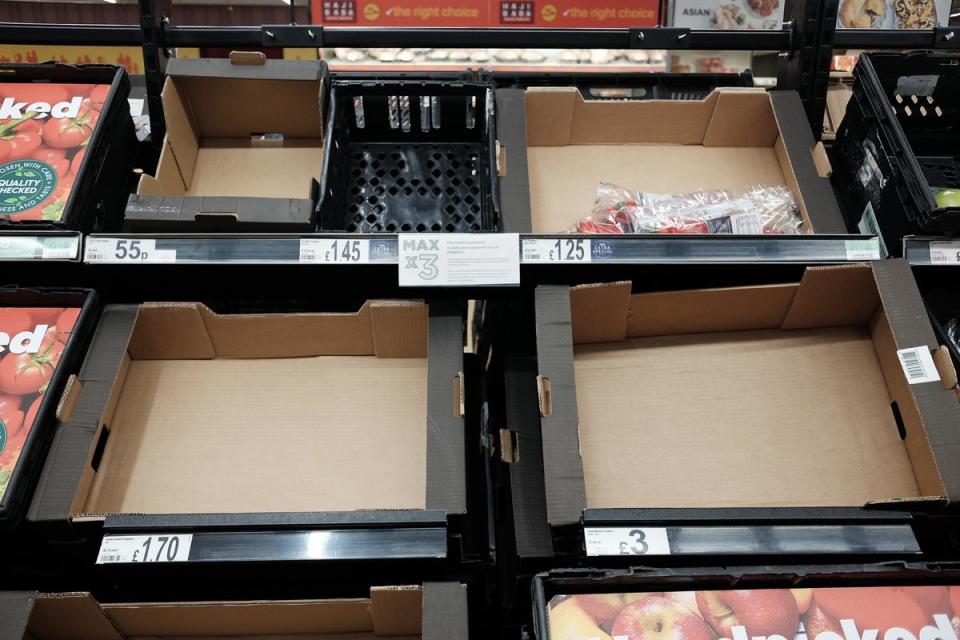Supermarket rationing could last for weeks, retail experts warn

Food shortages in supermarkets could “last for weeks,” retail experts have warned as the government is told the “clock is ticking”.
Tesco joined Asda, Aldi and Morrison’s as the latest supermarket to ration fresh produce a shelves across the country lay empty.
National Farming Union (NFU) president Minette Batters said this week at the NFU conference that the production of tomatoes and cucumbers is expected to drop to “the lowest levels since records began in 1985”.
She told the government the “clock is ticking” to action the post-Brexit subsidy scheme and get inflation under control so farmers can produce more reliably.
But environment secretary, Theresa Coffey, rejected responsibility for the current supermarket rationing of fruit and vegetables, saying: “We can’t control the weather in Spain.”
In the winter months, the UK imports around 95 per cent of its tomatoes and 90 per cent of its lettuces, most of it from Spain and north Africa.
Growers and suppliers in Morocco have had to contend with cold temperatures, heavy rain, flooding and cancelled ferries over the past three to four weeks - all of which have affected the volume of fruit reaching Britain.

But rather than an unprecedented weather inconvenience, Tom Church, co-founder of shopping community LatestDeals.co.uk with 2.5 million members, said the fruit and vegetable shortages have been “a long-time coming”.
He said: “Farmers warned of it in 2022 due to labour shortages, energy costs, and supermarkets forcing loss-making prices.”
Mr Church said there will be no “easy quick fixes” to alleviate the pressures facing supermarkets and farmers.
“Labour shortages, from recent government research, seems to be down to more people being ill and retiring early since the pandemic,” he said.
“In November the government announced a new seasonal worker visa which should help alleviate some of the problems in farming but that won’t make much difference until later in 2023.”
Meanwhile, Andrew Opie, director of food and sustainability at the British Retail Consortium, said the shortages are likely to last “a few weeks” but said that supermarkets are working with farmers to ensure customers can access a wide range of produce.

Abhi Ghadge, associate professor of Supply Chain Management, also said shoppers will continue to see problems for weeks to come but said supermarkets must turn to “local sourcing and alternate suppliers” to troubleshoot these issues.
He said: “Fresh salad, cucumbers, cabbages and cauliflowers will all be hit by shortages in the coming weeks. But we can’t just blame Brexit. A range of issues are having an impact on supply chains.
“Supermarkets need innovative solutions. Local sourcing and alternate suppliers are some commonly used supply chain strategies which can help manage such issues.”
Commenting on the impact of shortages and rationing on customers, London-based nutritionist Jo Travers said that she is concerned food shortages will result in people losing healthier options in their diet.
However, she said she hopes the situation will inspire people to “branch out”.
“The nutrients these fruits provide can be found in loads of other places. We can get similar nutrients from things like carrots,” she said. “I would like people to start experimenting with produce that is available and they may not have tried before.”

 Yahoo News
Yahoo News 
